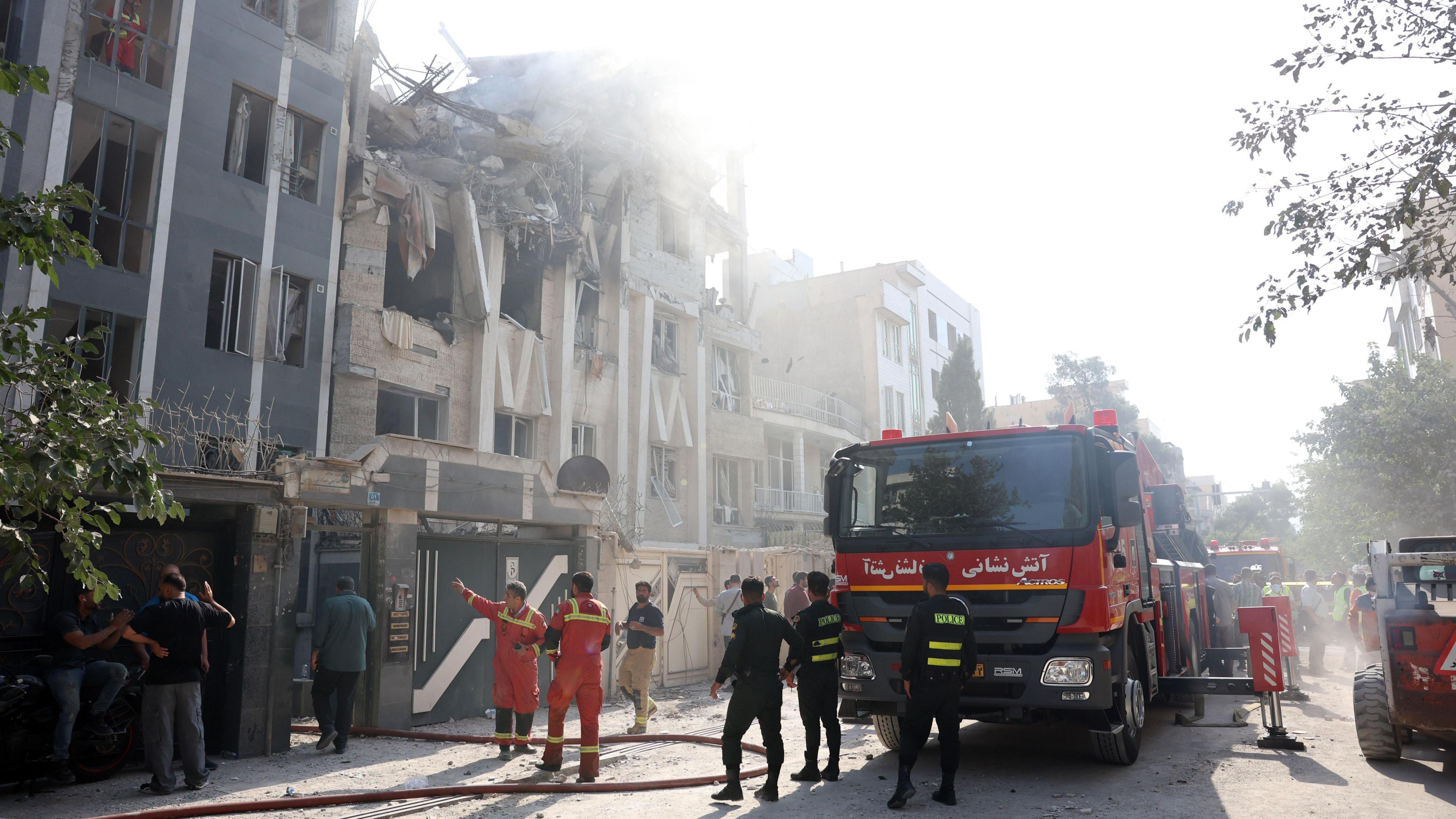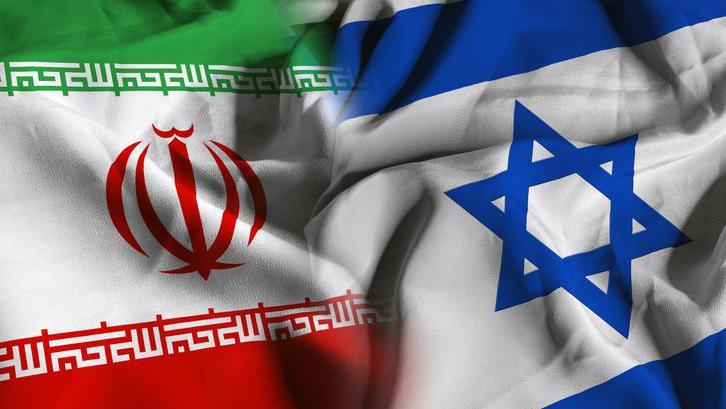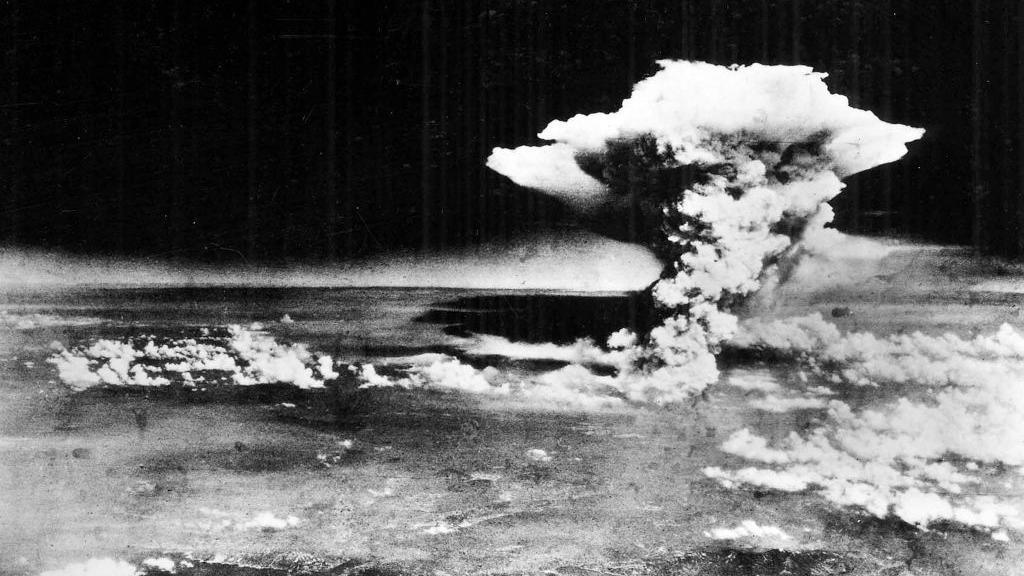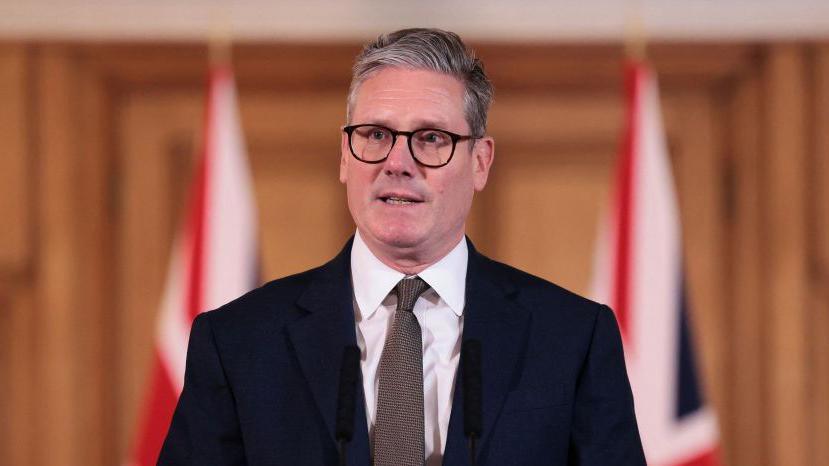Israel and Iran: What's happening?

- Published
World leaders have met to discuss how to respond to the conflict between Israel and Iran.
On Friday, Israel's military carried out military strikes on Iran. The two countries have continued to launch strikes at each other since then.
In a joint statement, the G7 group of countries - including the US, the UK and France - called for "peace and stability" in the Middle East, stressed the "importance of the protection of civilians", and supported "the security of Israel".
Read on for the background to the conflict between the two countries and what is being said about it.
- Published29 August 2022
What's happened?

On Friday, Israel's military began carrying out strikes inside Iran.
Israel's Prime Minister Benjamin Netanyahu said the military strikes targeted Iran's attempts to build a nuclear bomb.
He said that Iran was a threat to "Israel's very survival". Israel's military says that after the Israeli strikes, Iran launched hundreds of drones at Israel.
Following Israel's attack, Iran launched strikes of its own on Israel. Iran also called for other countries around the world to condemn – or criticise – Israel.
Both sides have continued to attack each other since.
Iran has also blamed the US for supporting Israel's attack. President Trump said he was aware of Israel's strikes before they took place, but said the US played no part in them.
UK Prime Minister Sir Keir Starmer called for Israel and Iran to show restraint, meaning to stay calm and keep control.
What are Israel and Iran?

Israel is a country in the Middle East, with a coastline on the Mediterranean Sea. In 1948 Israel was created as a homeland for Jewish people, following World War Two and the Holocaust.
Iran is also a country in the Middle East, bordering many countries including Afghanistan in the east and Iraq in the west.
In Iran, most people follow the Shia interpretation of Islam. It is an Islamic Republic, where religious leaders have a big say in the running of the country.
Israel and Iran have been enemies for many years, but in recent times the tension between the countries has resulted in military attacks on each other.
What are nuclear weapons?

Nuclear weapons are enormously powerful explosives. They get their energy from splitting or joining tiny particles inside an atom.
Nuclear bombs can be more powerful than even the biggest non-nuclear bombs. The explosions they produce are so powerful that just one nuclear bomb can destroy a large city.
There are five legally recognised nuclear weapons states: Britain, France, the US, China and Russia.
They mostly developed their nuclear weapons following World War Two, although China was slightly later in the mid-1960s.
There are other countries which claim to have nuclear weapons - North Korea, India and Pakistan - and it is widely believed Israel has them too, although it has not confirmed or denied this.
Iran has been long suspected of trying to build a nuclear bomb, which it has always denied. It says its nuclear research is for peaceful purposes, like making electricity, but last week a United Nations body (called the IAEA) said that Iran was not complying – or following – rules on sharing information about its nuclear programme.
What has been the reaction to the strikes?

Israel's President Benjamin Netanyahu said that the strikes were a "targeted military operation" claiming that "if not stopped, Iran could produce a nuclear weapon in a very short time".
In response to the strikes, Iran's Supreme Leader Ayatollah Ali Khamenei says Israel "should anticipate a severe punishment".
UK Prime Minister Sir Keir Starmer urged both Iran and Israel to "step back and reduce tensions urgently", calling the strikes "concerning".
"Stability in the Middle East must be the priority," he added.
US President Donald Trump told Fox News that he hopes Iran will continue negotiations with the United States on holding back its nuclear programme.
Earlier, US Secretary of State Marco Rubio said that America was not involved in the strikes and did not provide any assistance.
Speaking on behalf of UN Secretary-General Antonio Guterres, a spokesperson says Guterres is: "Particularly concerned by Israeli attacks on nuclear installations in Iran while talks between Iran and the United States on the status of Iran's nuclear programme are underway.
"The Secretary-General asks both sides to show maximum restraint, avoiding at all costs a descent into deeper conflict, a situation that the region can hardly afford."
What to do if you feel upset
Advice if you're upset by the news
It is normal to feel upset when news like this happens.
At Newsround, we have a guide about what to do if you are worried or upset by anything which is in the news.
You can read our guide on what to do here.
